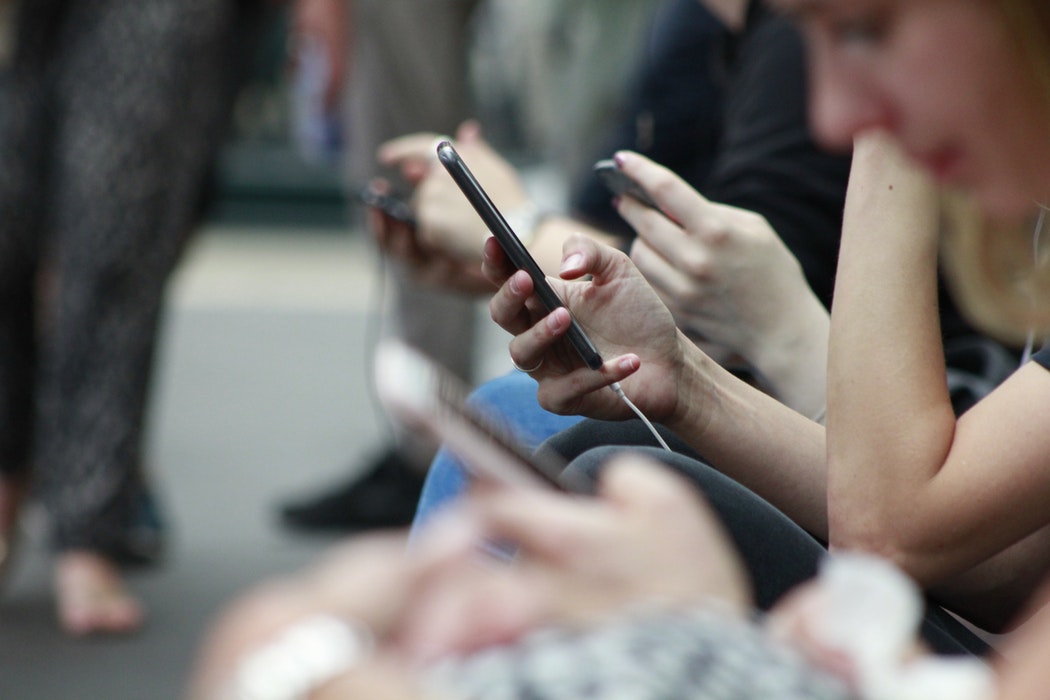If I were to have 20, 50, or even 100 people in a room and asked them all if they had a social media account, chances are all (or most everyone) would say “yes”. Whether it’s Facebook, Instagram, Twitter, Snapchat, etc., (you get the point), social media has become (and has been for years) a fundamental component of people’s lives. By definition, social media is a website and/or application that enables users to create and share content or to participate in social networking. While this is an accurate definition, it oversimplifies everything that social media represents in society today. Social media is a way to stay connected with others and it creates opportunities for new ideas & inspiration, however, it can also create avenues for self-loathing, cyberbullying, and envy. While it’s certainly not all good or all bad, it’s important to be mindful of the impacts social media can have on mental health.
How Social Media is Beneficial
- Enhanced Connectivity
- It has become easier for us to connect with
business people, family and friends and maintain relationships that may
otherwise have not been sustained.
- It has become easier for us to connect with
- Encourages Creativity & Innovative Thinking
- Social media sites are all about content in a
variety of forms. From written content to photos and graphics, there are many
ways for users to participate, engage, and show off their creativity.
- Social media sites are all about content in a
- Using Social Media for the Greater Good
- Social media offers easy ways to show support
for (or condemn) an issue, raise money, promote a charity event or spread an
important message. People can be encouraged to get involved in philanthropic
and altruistic causes via social media.
- Social media offers easy ways to show support
- Social media can benefit people already dealing
with mental health issues by helping them build online communities that provide
a source of emotional support.- This can be invaluable for people with various
health conditions to know they are not alone and to know there are sources of
support. These individuals are often one
of the most vulnerable in society and can help reduce the stigma attached to
seeking treatment.
- This can be invaluable for people with various
Potential Detrimental Effects of Social Media
- Social
Media Use Can Lead to Feelings of Depression & Loneliness- Ever heard of FOMO (fear of missing out)? Social media is a platform for people to
showcase their best selves (and best version of their lives). It’s all-too-easy for someone to peruse
through a friend’s social media account and feel lonely (because they’re left
out)—which could lead to feelings of depression. This phenomena has been referred to as Facebook
Envy.
- Ever heard of FOMO (fear of missing out)? Social media is a platform for people to
- Worsened
Body Image (particularly for young women)- When people, especially women, follow
pages/accounts/media that depict attractive women’s photos, it can cause
adverse effects on body image and decrease self-esteem. When people interact with family members on
social media, this does not happen.
- When people, especially women, follow
- Worsened Attention Span
- Because social media provides a means of
constantly giving into the temptation of instant, easy-access entertaining,
this ultimately means people can (and do) become more easily distracted.
- Because social media provides a means of
- Poor Sleep Habits
- Checking your phone ONE more time before bed is
a habit that many people have created.
Doing this can create anxiety or envy—which ultimately keeps the brain
on high alert and prevents people from falling asleep. Additionally, having light from a mobile
device inches from our face can suppress the release of melatonin, a hormone
that helps us feel tired.
- Checking your phone ONE more time before bed is
What to Do About It
- Turn off your notifications for at least a few
hours each day. This can be accomplished
by putting your phone in “Airplane” mode or “Do Not Disturb” - Delete apps that contribute to unhealthy body
image or feelings of inadequacy. - Add apps or follow pages that help you feel
better about yourself or inspire you to engage in healthy behaviors. Some of our recommendations include: - Take a day off from social media to focus on
other things. We recommend doing this on
a day that you don’t have school or work so you can use that time to
participate in other activities you enjoy - Make a plan with a group of friends to spend
more time hanging out in person and less time interacting via social media. - Set boundaries or only certain times when you
can check your notifications. This can
be done by setting screentime limits. - If you are a parent wanting to learn more about
how to limit your child or teenager’s social media use, check out these
additional tips from the American
Academy of Pediatrics.
Ultimately, using social media, screens, anything like that is not ALL bad and shouldn’t be banished, however, it’s important to be mindful of the detrimental effects and be intentional about how much time you do (or do not) allow yourself & your children to be on social media.
Follow her on Instagram for some positive social media posts!












